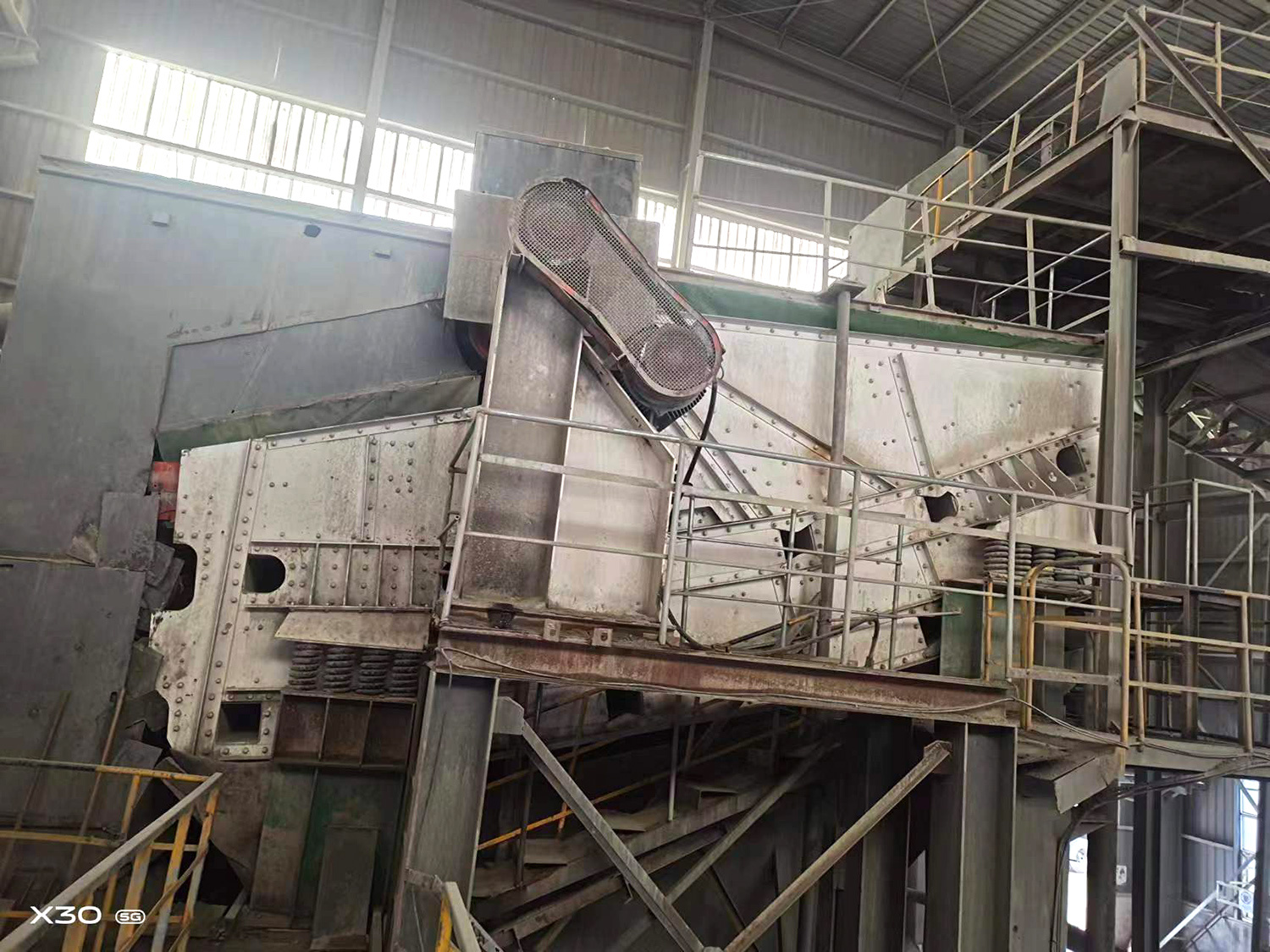How Hammer Crushers Revolutionize the Raw Material Handling Process in Cement Manufacturing
Sep 04,2025

How Hammer Crushers Revolutionize the Raw Material Handling Process in Cement Manufacturing
Table of Contents
- 1. Introduction to Hammer Crushers in Cement
- 2. Understanding Hammer Crushers
- 3. Importance of Raw Material Handling in Cement Production
- 4. Benefits of Hammer Crushers in Raw Material Handling
- 5. Hammer Crushers in Action: Case Studies
- 6. Best Practices for Implementing Hammer Crushers
- 7. The Future of Hammer Crushers in Cement Manufacturing
- 8. Frequently Asked Questions
- 9. Conclusion
1. Introduction to Hammer Crushers in Cement
In the cement manufacturing industry, the handling of raw materials is a critical process that significantly influences overall productivity and efficiency. **Hammer crushers** serve as a vital component in this process, designed to pulverize and crush various types of materials, including limestone, clay, and coal, into fine particles. This article delves deep into how hammer crushers improve the raw material handling process in cement manufacturing, exploring their mechanics, benefits, and best practices.
2. Understanding Hammer Crushers
To appreciate the role hammer crushers play in the cement industry, it’s essential to understand their design and operational mechanics.
2.1 Mechanics of Hammer Crushers
Hammer crushers utilize rotating hammers mounted on a shaft to crush materials. The material enters the crushing chamber, where it is impacted by the moving hammers. The **kinetic energy** from the hammers fractures the material into smaller pieces, which then exit through screens that determine the final particle size. This process is efficient and allows for continuous operation, making it ideal for large-scale cement production.
2.2 Types of Hammer Crushers
There are various types of hammer crushers available, including:
- **Single-Stage Hammer Crushers**: Suitable for crushing materials with low hardness.
- **Double-Stage Hammer Crushers**: Designed to handle tougher materials.
- **Reversible Hammer Crushers**: Allow for both crushing and grinding operations.
Each type has unique features that cater to specific raw material handling needs in cement production.
3. Importance of Raw Material Handling in Cement Production
Raw material handling is crucial in cement manufacturing as it affects quality, production rates, and operational costs. Efficient handling ensures that the materials are processed without delays and meet the necessary specifications for further processing. Poor handling can lead to increased waste, subpar product quality, and higher operational costs.
4. Benefits of Hammer Crushers in Raw Material Handling
Hammer crushers offer numerous benefits that make them an invaluable asset in the raw material handling process of cement manufacturing.
4.1 Enhanced Efficiency
One of the primary advantages of hammer crushers is their ability to operate continuously and efficiently. The design allows for high throughputs, reducing the time and energy required to crush raw materials. This efficiency leads to faster production cycles, ensuring that the cement manufacturing process runs smoothly.
4.2 Cost-Effectiveness
With their high efficiency, hammer crushers can significantly lower operational costs. They require less energy compared to traditional crushing methods, translating to lower electricity bills. Additionally, their durability and low maintenance requirements reduce downtime and repair costs.
4.3 Versatility
Hammer crushers are versatile machines capable of handling a wide variety of raw materials. Whether it’s limestone, clay, or other aggregates, these crushers can adapt to different materials, making them suitable for diverse cement manufacturing needs.
5. Hammer Crushers in Action: Case Studies
To illustrate the effectiveness of hammer crushers, consider the following case studies:
**Case Study 1: Large Cement Plant in Europe**
A leading cement manufacturer in Europe implemented hammer crushers for their raw material handling process. They reported a **30% increase in production efficiency** and a **25% reduction in energy consumption**, leading to significant cost savings.
**Case Study 2: Emerging Market Cement Producer**
An emerging market cement producer adopted hammer crushers to replace their outdated equipment. The transition resulted in better material quality, improved throughput, and reduced operational costs, establishing them as a competitive player in the market.
6. Best Practices for Implementing Hammer Crushers
To maximize the benefits of hammer crushers, cement manufacturers should adhere to best practices, including:
- **Regular Maintenance**: Schedule routine inspections and maintenance to ensure optimal performance.
- **Training Operators**: Provide thorough training for operators to understand the machinery and its capabilities.
- **Material Testing**: Conduct regular tests on raw materials to determine optimal crushing settings.
By following these practices, companies can enhance the effectiveness of their hammer crushers and improve overall production quality.
7. The Future of Hammer Crushers in Cement Manufacturing
As technology advances, hammer crushers are set to evolve with innovations aimed at increasing efficiency and sustainability. Future developments may include smarter automation systems for real-time monitoring and adjustments, as well as eco-friendly designs to reduce environmental impact.
8. Frequently Asked Questions
**1. What materials can be processed with hammer crushers?**
Hammer crushers can efficiently process a variety of materials such as limestone, clay, coal, and aggregates.
**2. How do hammer crushers compare to other crushing equipment?**
Hammer crushers offer higher efficiency, cost-effectiveness, and versatility compared to traditional crushing methods.
**3. What maintenance is required for hammer crushers?**
Routine inspections, lubrication, and parts replacement are essential for maintaining hammer crushers.
**4. Can hammer crushers handle wet materials?**
Yes, hammer crushers can process wet materials; however, adjustments in settings may be necessary to account for moisture.
**5. What is the typical lifespan of a hammer crusher?**
With proper maintenance, hammer crushers can have a lifespan of several years, often exceeding a decade.
9. Conclusion
Hammer crushers play a critical role in improving the raw material handling process in the cement industry. Their **efficiency**, **cost-effectiveness**, and **versatility** make them indispensable in modern cement manufacturing operations. By understanding their mechanics and implementing best practices, manufacturers can significantly enhance productivity, reduce operational costs, and ensure the production of high-quality cement. As technology continues to advance, the future of hammer crushers looks promising, paving the way for even greater improvements in raw material handling processes.
Hot Tags:
Contact Us
E-mail:byunfei2000@gmail.com
Wechat/WhatsApp:+86 17324886663
WhatsApp:+86 18738568071
Address:No. 12 Industrial Road, Zhaipo Town, Xinxiang, Henan Province







